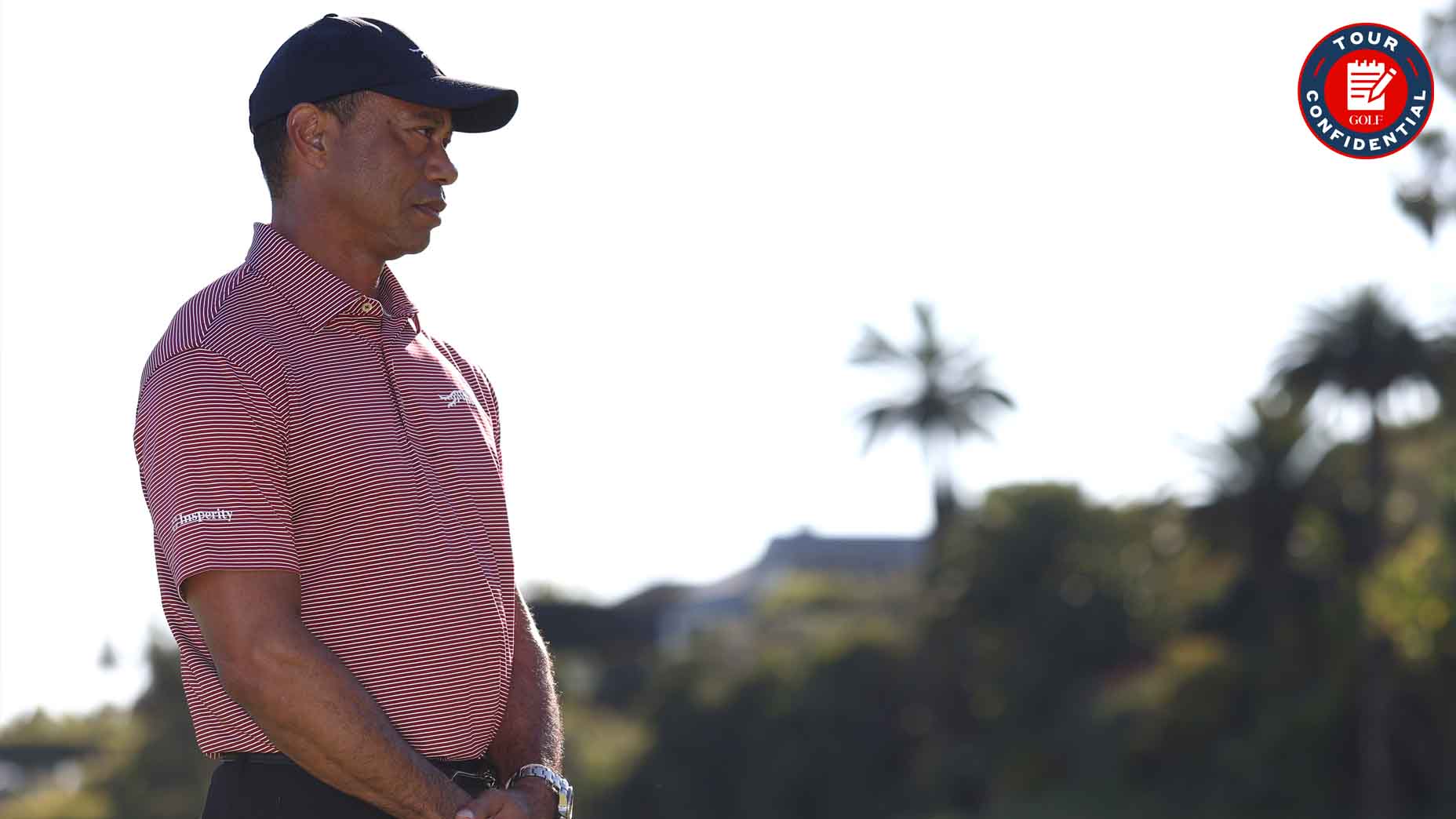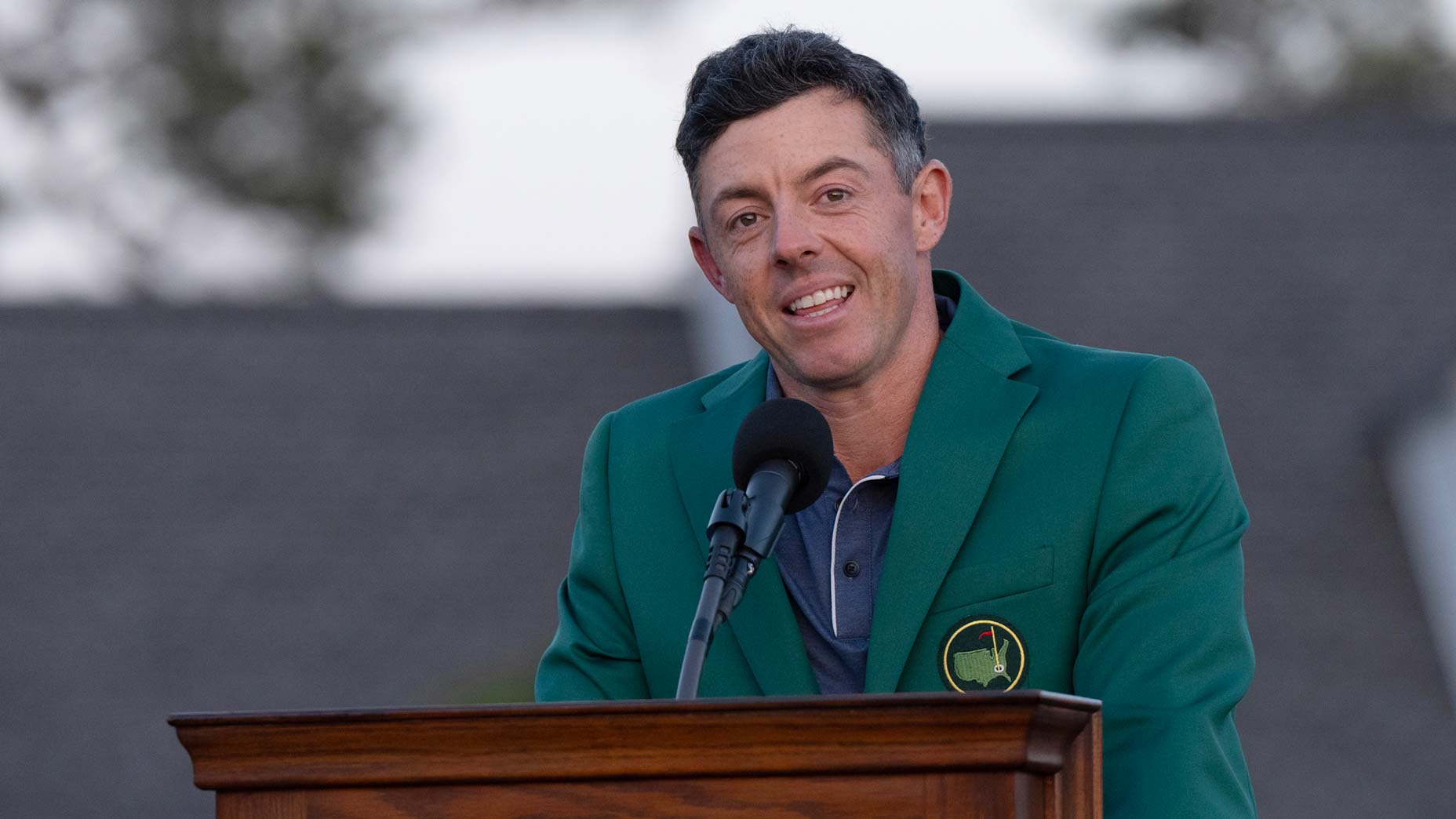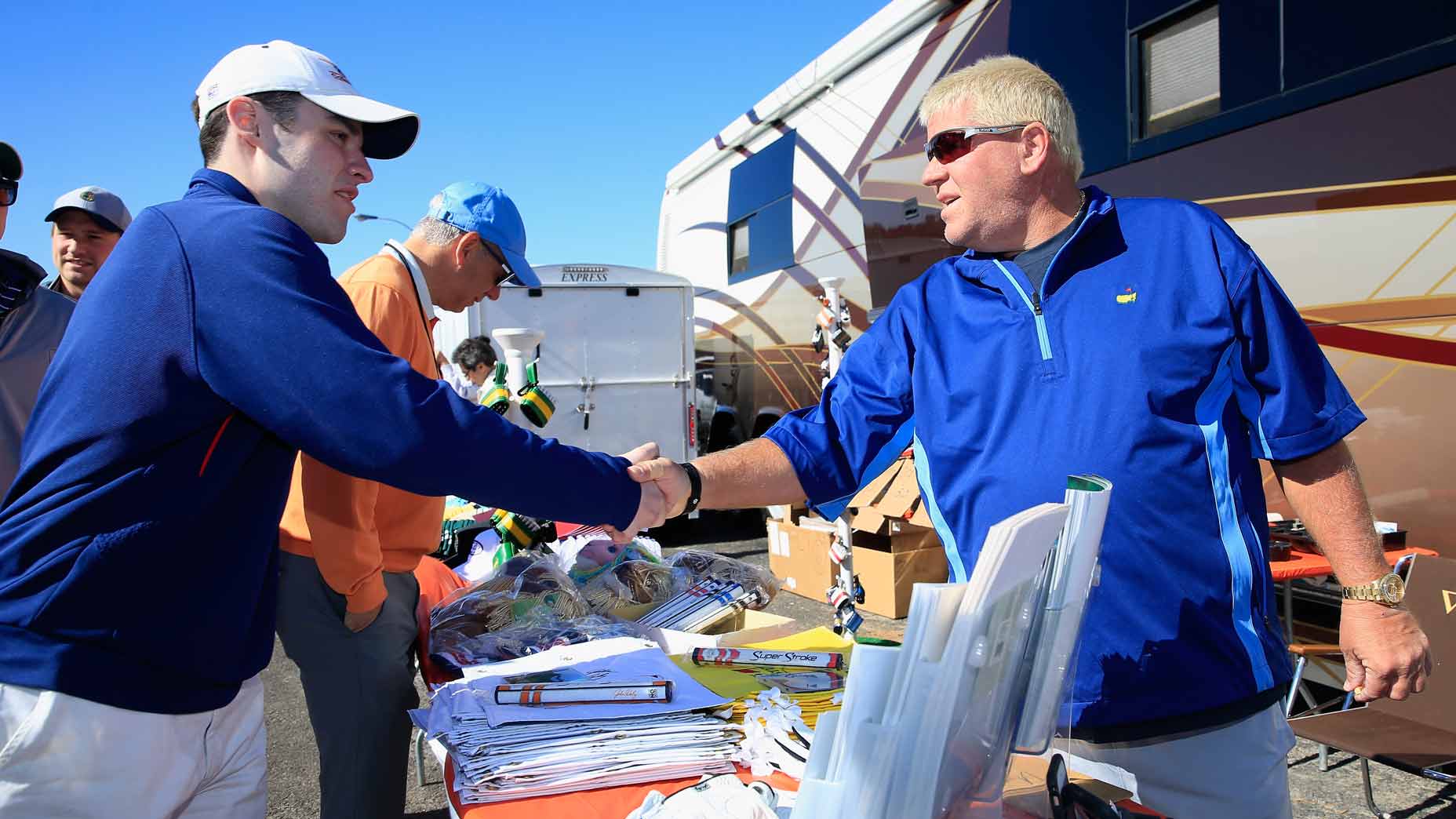AUGUSTA, Ga. — Dustin Johnson didn’t even have to think about it. He was going for it.
It was Friday afternoon at the Masters, and Johnson stood in prime position in the 15th fairway, just like always. The hole, a 550-yard par-5, has long suited both his eye and his game — a risk-reward play in which reward almost always outweighs risk for the two-time major champ. Two years ago, when DJ won the Masters, he made three birdies in four days on No. 15.
Just then, a gust of wind hit Johnson across the chest, sending ripples through his shirt. Suddenly, Dustin and his caddie/brother Austin were locked in conversation. The two brothers went back and forth like this for several minutes, Dustin holding a 7-wood, Austin a yardage book.
“There’s been a goofy wind all day here,” a gallery guard finally said, interrupting their murmurs. “A lot of long conversations that end in layups.”
Seconds later, Dustin surrendered. He grabbed a six-iron and — without taking a single practice swing — punted his ball down the fairway.
He walked away visibly frustrated.
“I had a good number, just it was a perfect 7-wood. But if I miss it at all, it’s not going to cover,” DJ said afterward. “So I felt like the best way to get a good look at birdie was to lay it up.”
Johnson was far from alone in that thought process Friday. All afternoon long, the groups came through No. 15, and all afternoon long, they laid up. Through two days, just four of the top 10 players in the world went for the 15th green in two (Patrick Cantlay, Jon Rahm, Scottie Scheffler and Justin Thomas). Of those who went for it, none landed their approach on the putting surface, and just two made birdie. Through Friday, the 15th was the only one of Augusta National’s four par-5s where the scoring average was above par.
This, of course, was by design. Augusta National makes tweaks to the golf course every year, and for the 2022 Masters, No. 15 fell in the club’s crosshairs. Maintenance teams lengthened tee boxes, reshaped fairways, and even, in the words of one gallery guard, “removed a big ole’ tree” from right next to the tee.
Officially, the 15th is now 550 yards, 20 yards longer than it was in 2021. Unofficially, though, the 15th is a brand-new golf hole, even for many of those who have played it for years.
“It’s so hard,” Rory McIlroy said Friday shortly after a lay-up par on No. 15. “Especially the way the wind is right now, it’s in off the left. So it’s so hard to hit it up that right side and commit. So it’s made it a tougher tee shot. You’re more likely to be blocked out by those trees on the left just because of the camber of the fairway. Then there’s no decision to be made there. It’s just you can’t go for the green. So it’s really dependent on the tee shot now, and you have to hit a great tee shot to give yourself a chance to go for that green in two.”
“Yeah, it’s longer, so even when it was into the wind before, an extra 20 yards and you could still get a 4-iron, which is not a bad club to come in there with,” Johnson agreed. “Especially when it’s windy. It’s a little easier to control. But, yeah, they definitely made it a little tougher.”
On No. 15, Augusta National’s changes have shifted the hole’s risk/reward balance. Whereas the hole once dared players to risk a challenging long-iron shot into a green guarded by water, now even a slight breeze is enough to convince most players to lay up.
“I think last year wasn’t as windy, so where I was after my tee shot today, I definitely would have thought about going for it, but in no way and in no circumstance was I going to go for that,” Collin Morikawa said with a chuckle. “The green is a little too bouncy. I just didn’t trust my chipping, especially today. It was going to be a nice wedge pin, so hit your wedge, take your 10, 15 feet, and see if you can make that putt.”

The goal of the changes to No. 15, as with every recent change at Augusta, is to beat back pro golf’s distance explosion. The farther players can hit, the lower scores they can shoot. The changes are an effort to bring scores back to their historical levels.
The club’s unstated goal is to level the Masters playing field among competitors of all eras — if 13-under was good enough for Fred Couples to win a green jacket in 1992, it should be good enough for whomever wins a green jacket in 2022.
“As we often have said, we look at every hole every year and evaluate course improvements to uphold the integrity of the design philosophies of Bobby Jones and Dr. Alister MacKenzie,” Augusta National Chairman Fred Ridley said in his annual press conference Wednesday. “We believe these enhancements will improve the strategy of these holes, as well as the excitement of the competition and the viewing experience of our patrons.”
Will Zalatoris was one of the few players who dared to reach the 15th green in two on Friday afternoon (Zalatoris was joined in that endeavor by Tiger Woods.) His approach shot landed right of the flagstick, just beyond the greenside bunker.
“I only had 215. I was trying to hit it into the fat part of the green and maybe in that right bunker,” Zalatoris said. “Really was about two yards from having a really simple chip and — y’know, welcome to Augusta — I’ve got 35 yards for eagle and I had to make a 10-footer for par.”
This is the problem with lengthening the 15th: the incentive to execute a great shot is removed. For most players, the 15th green is already nightmare fuel — a postage stamp surrounded by death.
“I mean, you don’t want to come up short,” Dustin Johnson said. “Yeah, it’s just no good place to miss it. The right bunker is probably the best place to miss it on that hole if you’re going for it.”
Instead, the better solution for most players was … not to go for it. So they didn’t.
Back on 15, Johnson chipped onto the green, where he faced a twisting 15-footer. When his birdie putt came to rest just shy of the flagstick, he slowly turned his head toward the sky.
“Damn!“
Just like that, Augusta National snatched back another stroke.










